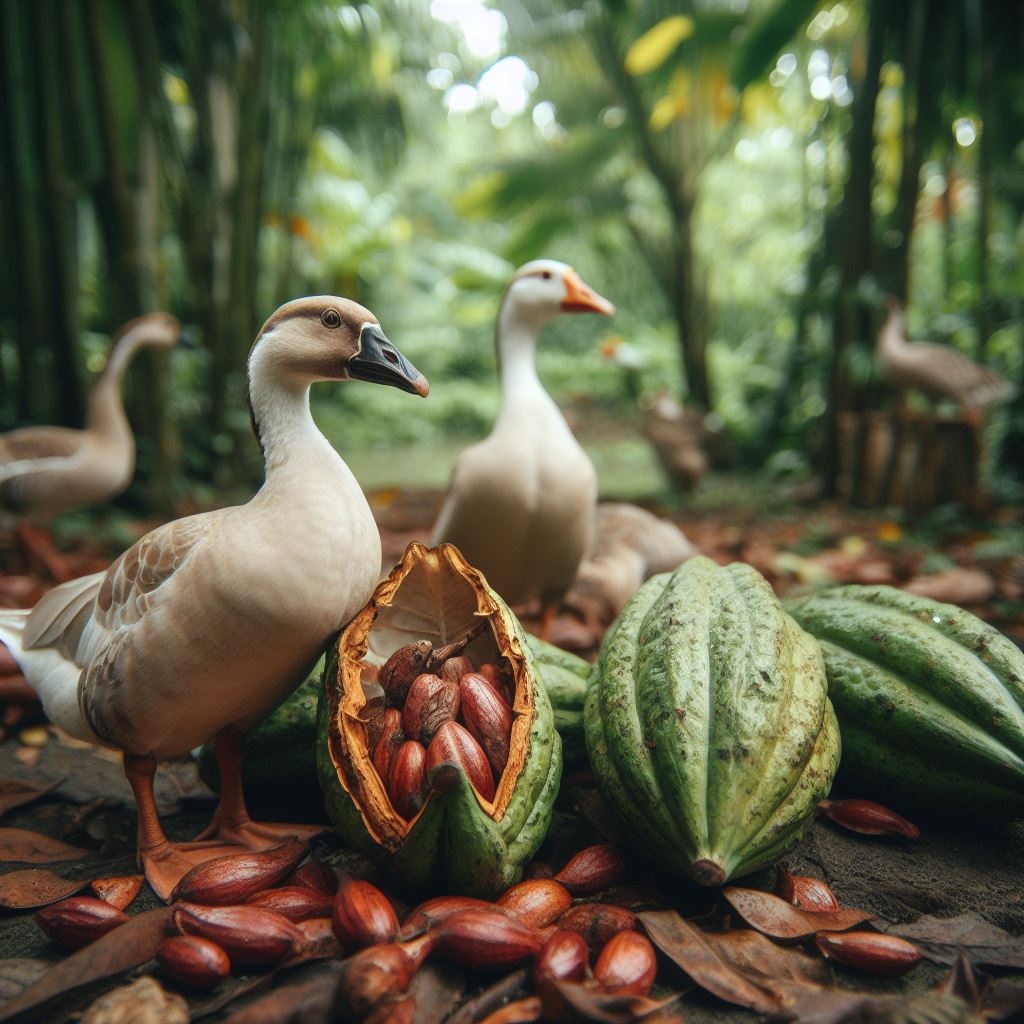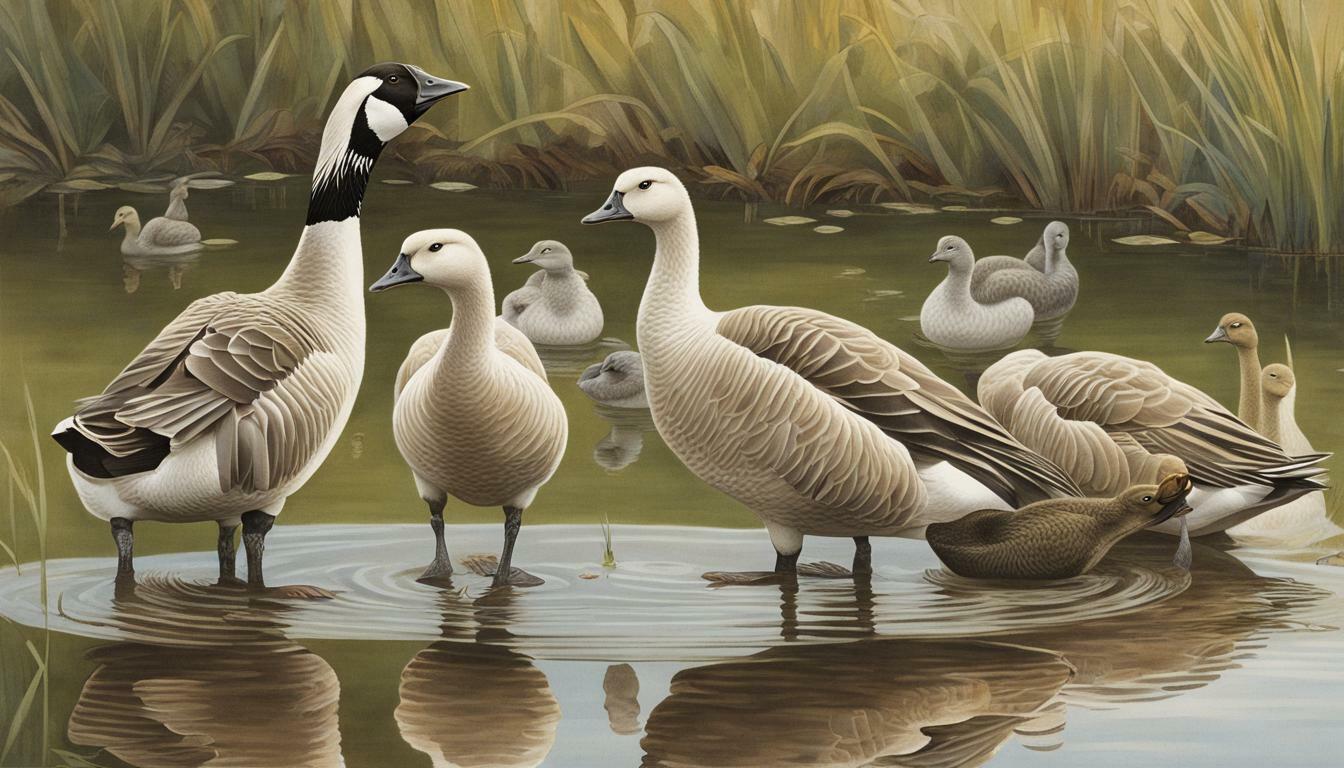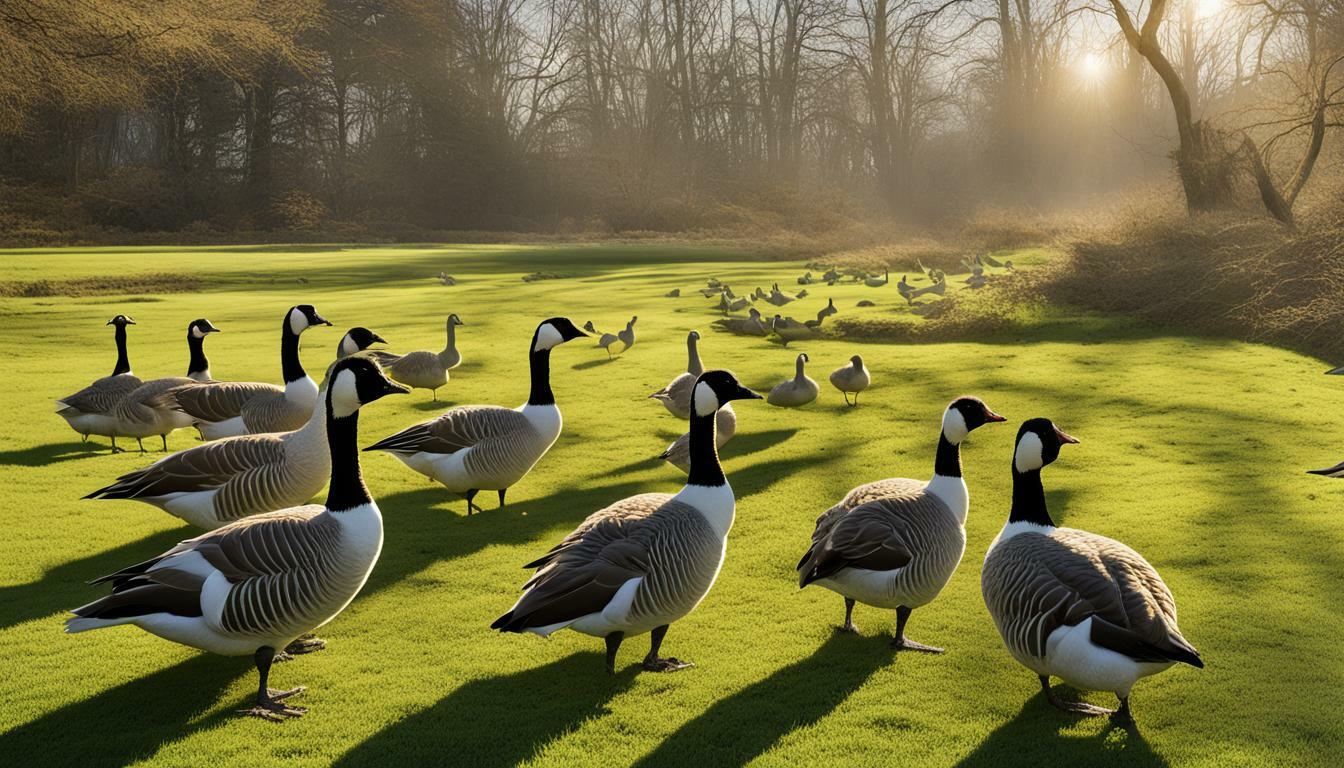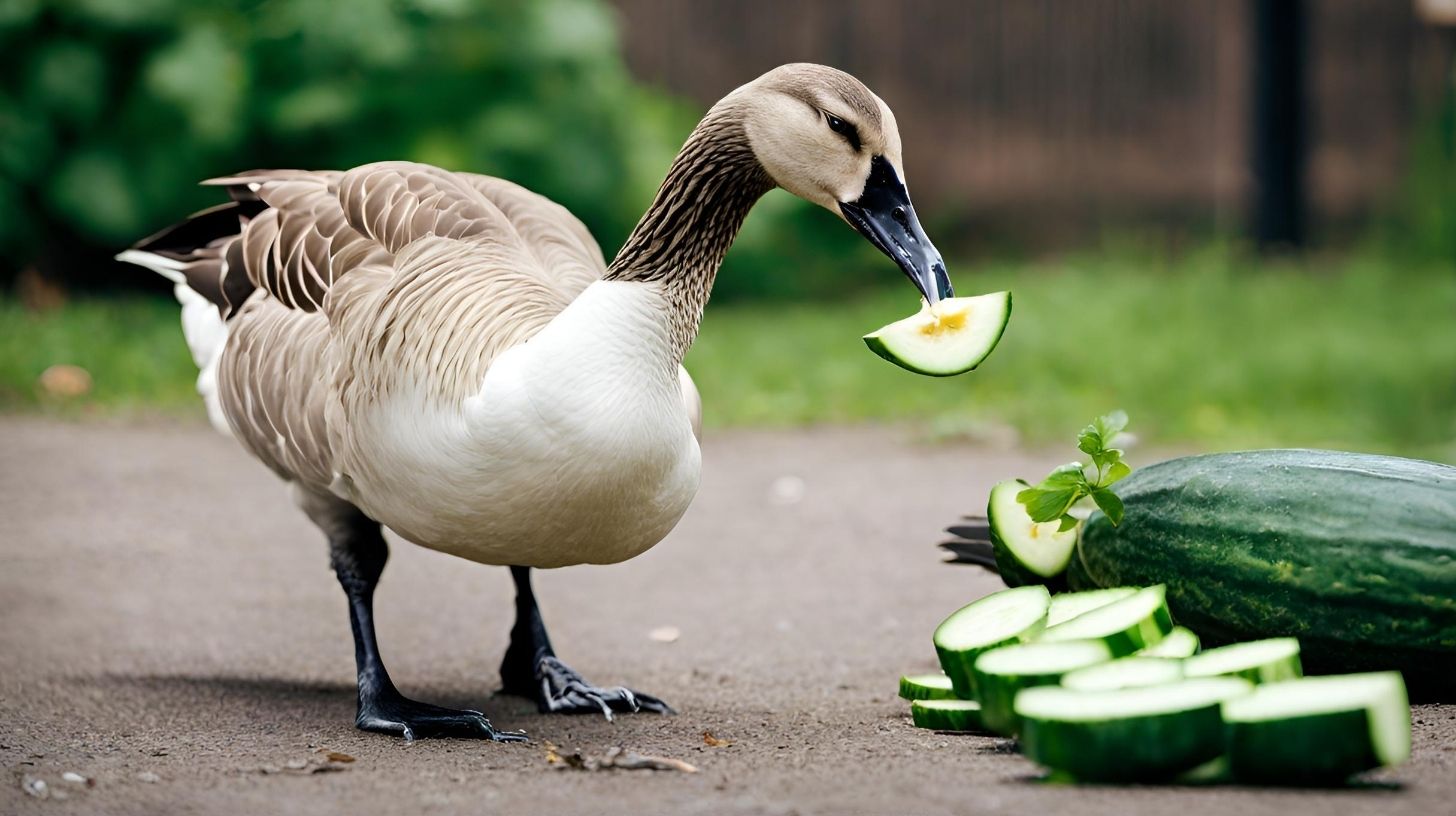Can Geese Safely Eat Almonds? Benefits and Feeding Tips
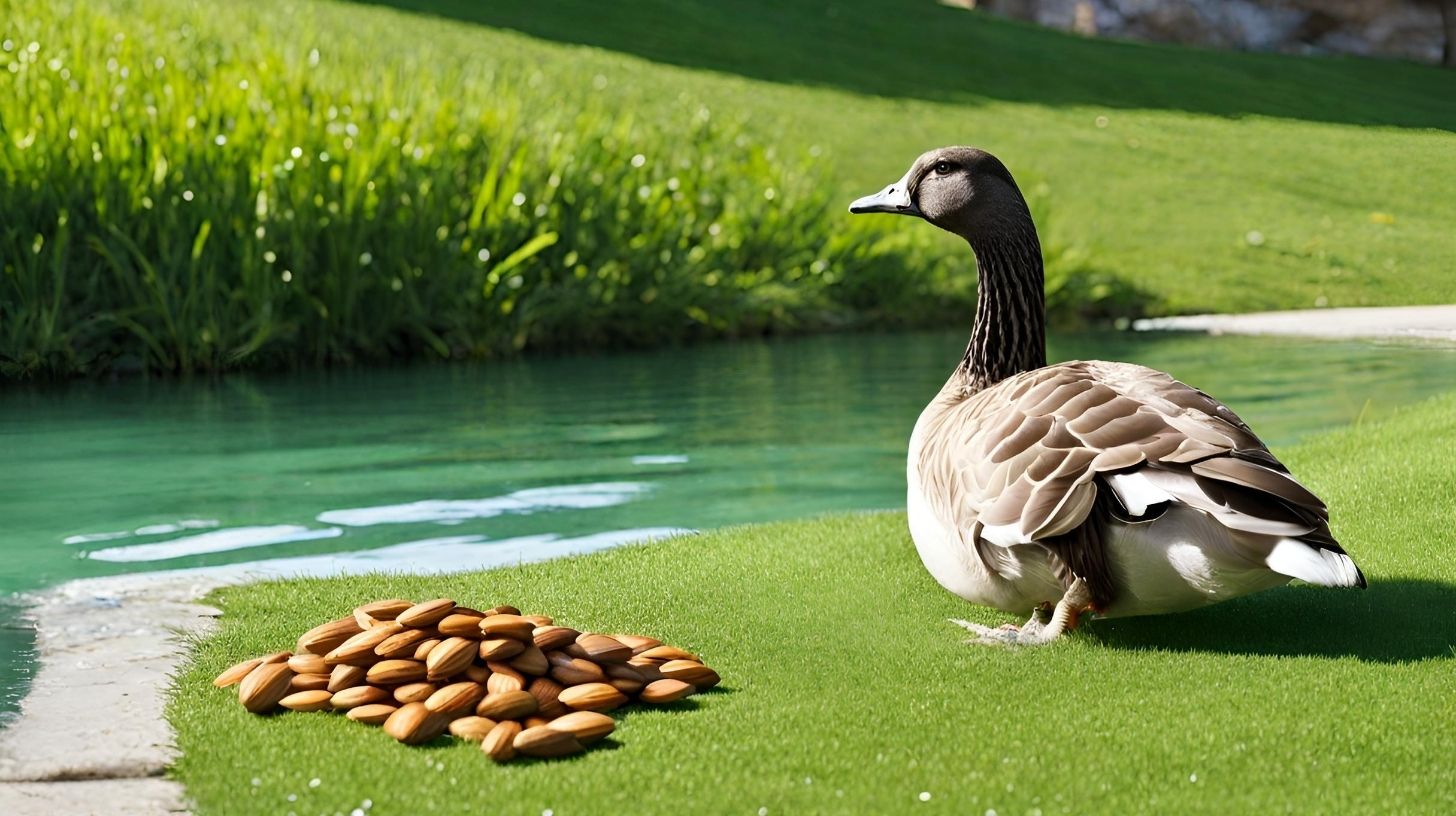
Table of content:
- Can Geese Have Almonds?
- Are Almonds Toxic to Geese?
- Are Almonds Bad For Geese?
- What Nuts Can Geese Eat?
- Feeding Guideline for Geese Eating Almonds
- What Happens if Geese Eat Too Many Almonds?
- Do Almonds Hurt Geese?
- Benefits of Almonds for Geese
- What Do Geese Like to Eat?
- Should You Feed Geese Almonds?
- Frequently Asked Questions
- Conclusion
Geese can eat almonds in moderation as an occasional treat. Almonds contain healthy fats and nutrients that may benefit geese. However, they should only be fed sparingly due to their high fat content. Overfeeding almonds could lead to obesity and other health problems in geese.
Key Takeaways:
- Geese can eat almonds, but only in moderation as a treat
- Almonds contain healthy fats, protein, fiber and nutrients that can benefit geese
- Avoid overfeeding almonds due to their high fat and calorie content
- Only feed geese a few almonds at a time, no more than once or twice a week
- Chop or crush almonds to an appropriate size before feeding geese
- Almonds should not make up a significant portion of a goose’s diet
- Offer geese a variety of treats like greens, oats, corn, grapes for balanced nutrition
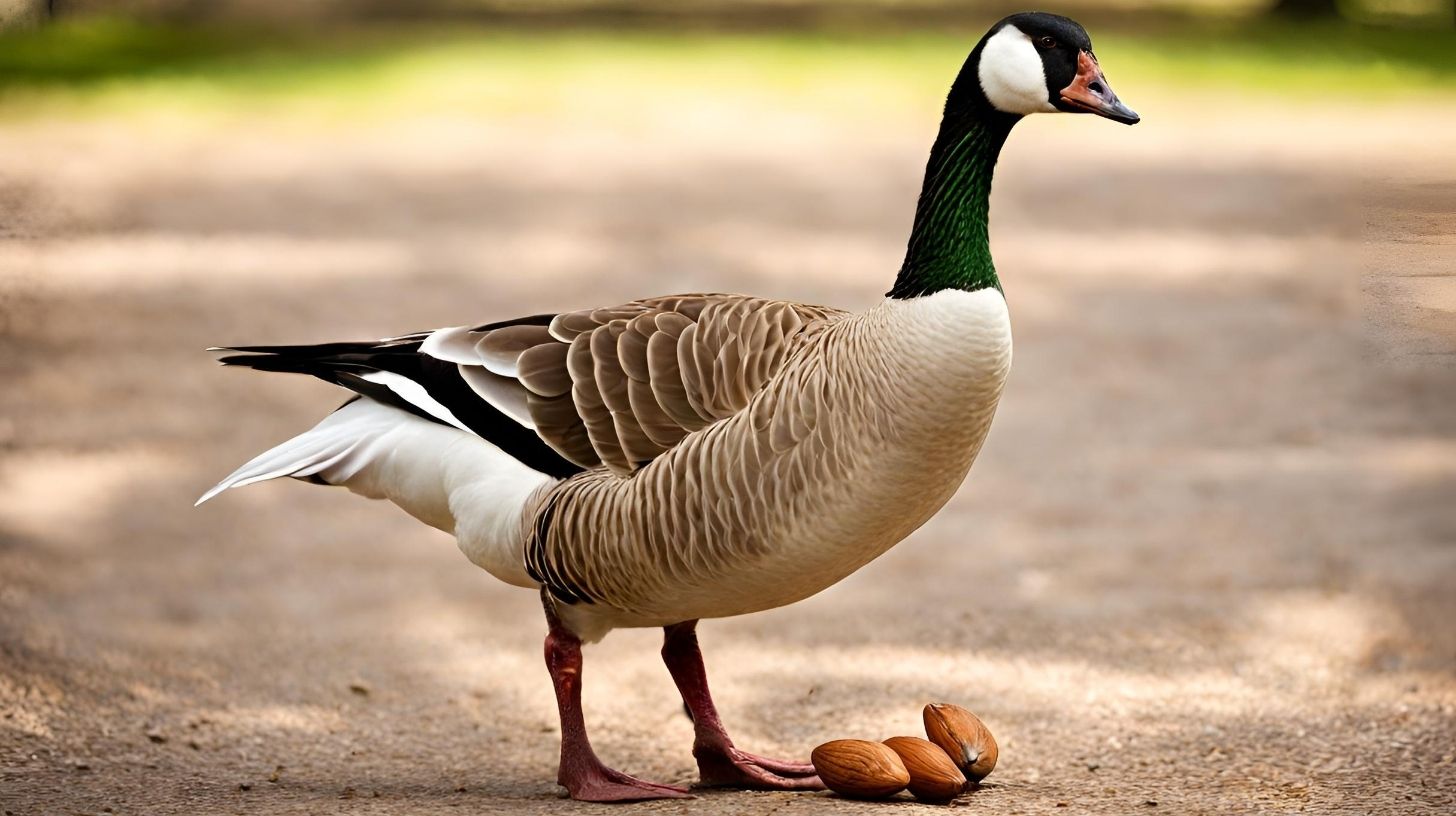 Can Geese Have Almonds?
Can Geese Have Almonds?
Almonds are safe for geese to eat in small quantities. A few almond slivers or chopped almonds make a nutritious occasional snack for domestic geese.
In the wild, geese forage on grass, aquatic plants, seeds, grain and berries. Almonds fall into the seed and nut category that geese naturally consume.
However, almonds should not become a staple food. With a high fat and calorie content, almonds are best reserved as an infrequent treat.
Geese have expandable esophagi and can swallow large food items whole. But it’s ideal to break or cut almonds into appropriately sized pieces before feeding them. This helps prevent potential choking hazards.
When asking “can geese eat almonds?”, the answer is yes, but in moderation. Consider almonds more of a supplemental snack than dietary staple for geese.
Are Almonds Toxic to Geese?
Almonds contain amygdalin, a naturally occurring compound that releases cyanide when metabolized. This has raised some concerns over whether almonds are safe for geese and other animals to consume.
However, the amygdalin levels in commercially available sweet almonds are very low. Bitter almonds contain much higher concentrations and should always be avoided.
Sweet almonds are not considered toxic or hazardous to geese health when fed in small amounts. The trace levels of amygdalin are unlikely to cause cyanide poisoning.
Some other key points regarding almond toxicity:
- Amygdalin content is higher in bitter almonds vs sweet almonds
- Geese can safely eat a few sweet almonds at a time
- Do not allow geese to binge eat bags of raw almonds
Monitor for any signs of cyanide poisoning including breathing problems, lethargy, or dilated pupils if feeding almonds. But geese should tolerate small, occasional almond treats without issues.
Are Almonds Bad For Geese?
Almonds are high in fat, containing over 14 grams of fat per ounce. For this reason, some people wonder whether almonds are bad for geese health.
The high fat content does mean almonds should only comprise a very small part of a goose’s diet. But small, occasional almond treats will not harm geese when consumed in moderation.
Some key points on the risks and benefits of feeding geese almonds:
Potential Benefits:
- Provide healthy fats, fiber, protein, magnesium, antioxidants
- Add variety to diet
- Offer mental stimulation
Potential Risks:
- Too high in calories/fat as staple food
- Risk of obesity if overfed
- Choking hazard if not chopped
- Amygdalin content poses toxicity risk if overconsumed
Ultimately, the risks associated with almonds are quite low when fed occasionally and in small amounts. An almond or two here and there will not negatively impact goose health.
Monitor goose weight and health if offering almonds frequently. Reduce or eliminate from the diet if signs of obesity, crop impactions or other issues arise.
What Nuts Can Geese Eat?
In addition to almonds, there are other nut varieties that make suitable occasional treats for geese:
Walnuts – High in omega-3s but limit due to fat content
Peanuts – Chopped peanuts are safe for geese in moderation
Hazelnuts -Contain healthy fats, calories; give only as a treat
Pine nuts – High in fat so should just be an occasional snack
Pecans – Chop before feeding; high in fat so limit portions
Pistachios – Remove shells; chopping makes them safer for geese
Cashews – Offer sparingly due to high fat content
Macadamia nuts – Can cause intestinal blockage so limit or avoid
With all nuts, proper portion control is key. Chopping nuts reduces choking risk. Monitor goose health and weight when offering nuts. Discontinue use if signs of obesity or illness occur.
Feeding Guideline for Geese Eating Almonds
When offering geese almonds, follow these feeding guidelines:
- Only feed 1-2 almonds per goose at a time
- Chop almonds to an appropriate bite size
- Offer no more than once or twice weekly
- Provide almonds as part of varied diet
- Discontinue use if signs of obesity/illness
- Supervise geese when feeding almonds
- Avoid moldy or spoiled almonds
- Prevent geese from accessing large quantities
Start by introducing a single chopped almond and monitor to ensure it is tolerated. Slowly increase to offering a couple almonds per goose no more than twice weekly.
Chopping almonds helps prevent potential choking hazards or impactions for geese and other waterfowl.
Always supervise geese when providing almond treats. Do not leave large amounts accessible to prevent gorging.
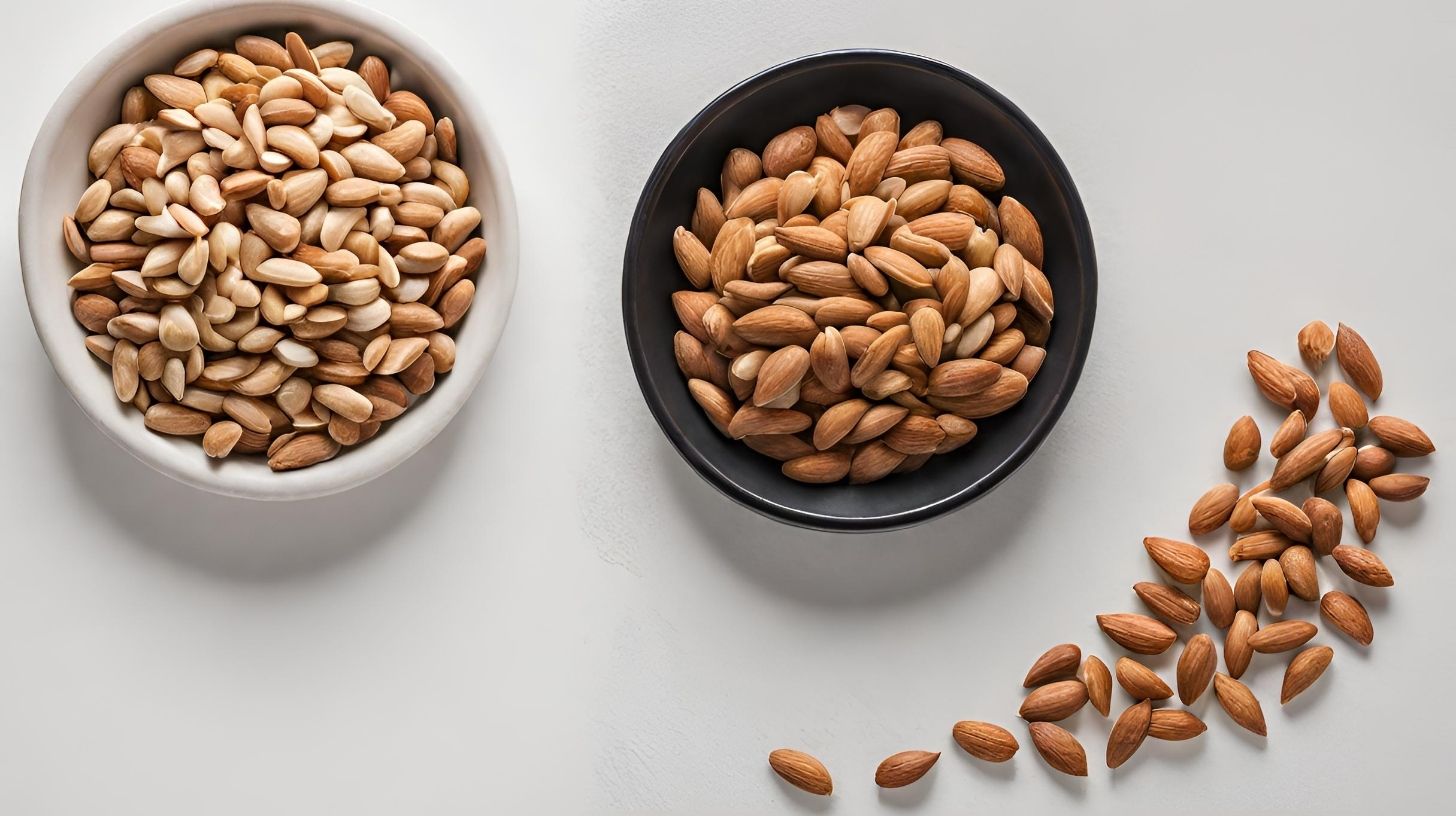 What Happens if Geese Eat Too Many Almonds?
What Happens if Geese Eat Too Many Almonds?
Feeding geese too many almonds can cause a few health concerns:
Obesity – Almonds are very high in fat and calories. Overconsumption could lead to significant weight gain in geese. Obese geese are prone to joint disorders, hepatic lipidosis, reproductive issues and cardiovascular strain.
Crop impactions – Geese gorging on almonds may fail to chew them properly. Whole almonds can get lodged in the crop or esophagus causing a potentially serious blockage.
Fatty liver disease – Excess fat consumption can contribute to hepatic lipidosis. This can cause liver enlargement, damage and failure in geese.
Nutritional imbalances – Too many high fat, high calorie almond treats could lead to vitamin and mineral deficiencies long-term. A varied diet is healthiest.
To avoid these issues, feed geese no more than a couple almonds at a time and no more than 1-2 times per week. Chopping almonds into sized pieces can also lower these risks. Monitor goose health closely for obesity and other issues if offering almonds frequently.
Do Almonds Hurt Geese?
When fed properly in moderation, almonds should not hurt geese. In fact, small amounts of almonds can provide some nutritional benefits.
Almonds contain healthy fats, protein, magnesium, fiber, vitamin E and other nutrients. This makes them a valuable supplemental food when consumed in appropriate portions.
The main risks of almonds for geese come from overconsumption. Allowing geese to eat unlimited almonds could lead to health problems over time due to their high fat and calorie content.
To prevent almonds from causing harm, follow these tips:
- Only feed 1-2 almonds per goose at a time
- Chop or crush almonds before feeding
- Offer almonds no more than 1-2 times per week
- Supervise geese when offering almond treats
- Avoid allowing geese free access to large amounts
When fed sparingly as a snack, almonds can provide nutritional variety without hurting geese health. But allowing geese to binge on almonds could contribute to obesity, impactions and other issues over time. Moderation is key.
Benefits of Almonds for Geese
Here are some of the main benefits geese can obtain from eating almonds in moderation:
- Healthy fats – Almonds contain mostly monounsaturated fats that may support cardiovascular and brain health in appropriate amounts.
- Protein – Almonds provide geese with highly digestible, plant-based protein for growth.
- Fiber – The indigestible carbohydrates in almonds can aid digestion and gut health.
- Vitamin E – Almonds are high in this antioxidant vitamin that boosts immune function and helps prevent cell damage.
- Magnesium – Almonds provide this mineral involved in bone development, protein synthesis, energy and nerve function.
- Enrichment – Foraging for or eating novel nut treats provides geese valuable mental stimulation.
The healthy fats, protein and micronutrients in almonds can complement the rest of a goose’s varied diet when consumed occasionally. Just be sure not to overfeed.
What Do Geese Like to Eat?
In addition to the occasional almond treat, geese enjoy and benefit from eating:
- Grass and leafy greens – Romaine, kale, spinach provide nutrients
- Aquatic plants – Cattails, water hyacinths, duckweed naturally foraged
- Pellets or crumbles – Provide balanced nutrition
- Grains – Corn, rice, oats, wheat support energy needs
- Fruits – Apples, grapes, berries offer sweet treat
- Vegetables – Squash, peas, melon for variety
- Insects – Protein-rich food naturally foraged by geese
- Eggshells – Provide calcium; finely crushed before feeding
Offering geese a diverse diet with a mix of grains, produce, leafy greens, and protein sources is ideal for their health. Almonds can supplement this balanced diet when fed occasionally.
Should You Feed Geese Almonds?
Almonds make a safe, nutritious treat for geese when fed in moderation. Their high fat and calorie content means intake should be limited to avoid obesity and other health issues.
Here are some recommendations on feeding geese almonds:
- Limit treats to 1-2 almonds per goose, 1-2x weekly
- Chop or crush almonds to reduce choking risk
- Supervise geese during almond feeding
- Discontinue use if signs of obesity, illness occur
- Ensure almonds complement varied, balanced diet
Ultimately, almonds should comprise only a very small part of a goose’s overall diet. Use them as supplemental enrichment and provide a diverse mix of pellets, greens, grains and produce as the dietary foundation.
With proper portions and monitoring, almonds can be safe, nutritious snack geese enjoy. Be sure not to overfeed them to prevent possible health risks from too much fat intake over time. Moderation is key when asking “can geese eat almonds?”
Frequently Asked Questions
Can geese eat roasted almonds?
Yes, roasted almonds are safe for geese to eat. However, raw almonds are healthier as roasting destroys some vitamins. Limit roasted almonds to occasional treats.
Should you soak almonds before feeding geese?
It’s not necessary to soak raw almonds fed to geese. Simply chop them to an appropriate size before feeding. Soaking makes almonds softer but does not provide added benefits.
Can you feed geese too many almonds?
Yes, overfeeding almonds can lead to obesity, crop impactions and other health issues in geese. Limit almonds to 1-2 per goose, 1-2 times weekly. Do not leave large amounts accessible.
How long does it take for almonds to digest in geese?
Almonds may take 8-12 hours to fully digest in geese, depending on if they are chopped or whole. Geese lack teeth to grind nuts so chopping aids digestion. Monitor droppings if feeding nuts.
Are all nuts safe for geese to eat?
Most nuts are safe in moderation but macadamia nuts may pose choking risks. Limit high fat nuts like macadamias, pecans and avoid moldy/contaminated nuts. Chop all nuts before feeding geese.
Conclusion
Almonds can provide geese a beneficial source of fats, protein, minerals and nutrients. However their high calorie density means intake must be strictly limited to prevent obesity.
When fed in moderation no more than twice weekly, almonds make a safe, nutritious supplemental food for geese. But they should not become a dietary staple. Chopping almonds reduces choking hazard.
Monitor goose health closely when offering almond treats. Discontinue use if signs of excess weight, crop problems or illness occur. Overall, almonds can be part of a nutritionally balanced diet when consumed occasionally in small portions.
Welcome. I’m Adreena Shanum, the proud owner of this website, and I am incredibly passionate about animals, especially poultry. I founded adreenapets.com as a labor of love, stemming from my desire to share my knowledge and experiences with poultry enthusiasts worldwide.

